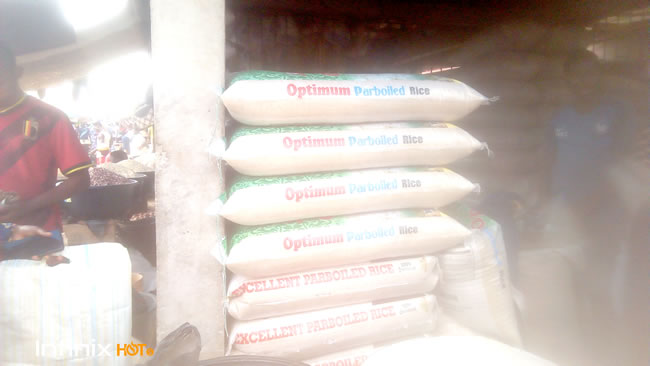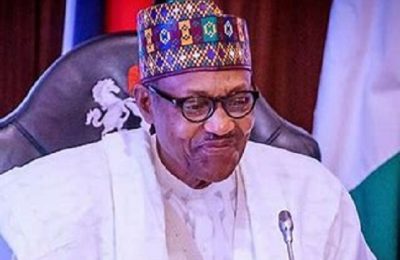
VINCENT KURAUN looks into the reason Nigeria is undergoing food inflation. its effects on poor Nigerians.

The three basic needs of man are food, clothing and shelter. Without these things, life and living might be difficult. For a man, finding it difficult to afford a three-square meal troubles the soul. In Nigeria, today, many families can no longer afford basic meals as the prices of food have skyrocketed while minimum wage has remained stagnant. A bag of rice, for instance, costs between N40,000 and N50,000 depending on the quality while 25 litres of vegetable oil now sells at N36,000.
According National Bureau of Statistics (NBS), the food inflation rate in November 2022 was 24.13 per cent on a year–on- year basis which was 6.92 per cent higher compared to the rate recorded in November 2021, which was 17.21 per cent, while on a month-on-month basis, the food inflation rate in November 2022 was 1.40 per cent, this was 0.17 per cent higher than the rate recorded in October 2022 (1.23 per cent).
The average annual rate of food inflation for the 12 months period ending November 2022 over the previous 12 months average was 20.41 per cent, which was 0.21 per cent points lower from the average annual rate of change recorded in November 2021 20.62 per cent. But the percentage change in the average Consumer Price Index (CPI) for the 12 months period ending November 2022 over the average of the Consumer Price Index (CPI) for the previous 12 months period was 18.37 per cent, showing a 1.39 per cent increase compared to 16.98 per cent recorded in November 2021.
According to Trading Economics which also relied on the data from the NBS, this year’s inflation is the highest reading in the history of Nigeria since September 2005. Food inflation climbed for the seventh straight month to 24.13 per cent, which is the highest since October 2005. Prices of imported food climbed 18.1 per cent from a year earlier.
Without food, people can hardly function. Food is an essential component of survival and in a situation where the purchasing power of the people is no longer efficient, one would wonder the degree of chaos that would occur in an economy that is beleaguered with food crisis.
But what then are the factors responsible for the incessant increase in prices of foods?
A farmer who preferred to be called Baba Christopher and has been into farming for over 20 years explained that increase in the cost of fertilizer and flooding were some of the reasons that food prices keep rising. According to him, had to stop farming as he was no longer getting much profit from it. Baba Christopher specialised in vegetables and maize. He told Sunday Tribune that, more so, the land he uses for farming was destroyed by consistent flooding from heavy rainfall and he could not afford to pay for fertilizer.
“My wife and I are farmers, but we had to stop farming this year because we were getting little returns from it. This year in particular, our farmland was washed away by flood; our vegetables, maize, ewedu, nothing survived. Transporting the little harvest we got was expensive, as transporters will charge you double by saying petrol is expensive. My wife had to buy corn from other farmers to roast and sell it in order for us to survive. The price of fertilizers is not even something we can afford.”
Tola Bamiro, a farmer who is into agro commodities, noted that the cost of production has continued to rise unchallenged, lamenting that some other unsavoury factors. particularly human, also contributed to the problems.
“The cost of production is high; cost of logistics and transportation too add to the increase in prices of commodities and, sadly, the purchasing power of Nigerians is low
“If a country is facing unrest, nothing will work and this is why commodities are expensive, because farmers no longer feel safe on their farms due to attacks from herdsmen. Many farmers were killed in Gombe, Zamfara, and even Benue states.
“Logistics plays an important role in the supply value chain. We have bad roads, extortions from policemen and produce paper collectors. In Benue State, for example, which is touted as the food basket of the nation, the roads are in terrible shape. There is also massive extortion from produce paper collectors and policemen.
“The floods that ravaged many areas in the country destroyed hectares of farmlands; definitely it will lead to scarcity of foodstuffs and this will in turn increase the prices of food items,” he explained, adding “I am into agro commodity procurement with palm oil as part of the produce I sell. The price of kernels has increased and oftentimes, we cross borders to get cheap and quality kernels, the exchange rate too is a major factor, but in business, you flow with the economics of the nation.”
Kunle Olagundoye, a farmer who is into sweet corn, sweet pepper, cucumber, and tomatoes, said he suffered some losses after buying fake pesticides, coupled with the fact that nature also dealt him severe blows.
“Climate change really affected my plantation. I faced pest infestation, and bought fake pesticides in the market. So, I lost much in my farming business.
“Lack of access to funds stopped us from expanding. There is also the issue of middlemen who buy from farmers at low prices and sell to consumers at high prices. The cost of NPK fertilizers has increased from N15,000 to N32,000. How do you expect a farmer whose profit isn’t even up to N32,000 to buy a bag of fertilizer?”
Hamis Abubakar, a major foodstuffs dealer at Ile-Epo Market located in the Abule Egba area on the Lagos Abeokuta Expressway in Lagos, said so many factors are affecting the prices of foodstuffs. Like Bamiro, he cited the insurgency in the northern part of the country, the activities of kidnappers and herdsmen, among others, as the major issues affecting the situation.
According to him: “Most farmers in the North could not get to farmlands that are far away. In the remote villages where we have most of our large fields, the people cannot be able to go there because of Boko Haram, kidnappers and herdsmen.
“So, the ones they were able to produce are not enough to meet our demand. Therefore, the price will go up due to low supply,” he expatiated adding that the policy on the recent redesigned currency by the Central Bank of Nigeria and the fast approaching general election are other reasons for the high prices of foodstuffs. Politicians, he explained, are flooding the market to buy up existing produce not minding the cost.
According to him, people are rushing to buy foodstuffs with the old currency but many of the farmers don’t keep money in the banks. The fear of having to deal with ‘expired currency’, he said, is forcing some of them to hoard their produce.
“Right now, the price of beans is about N15,000, but we are buying it at the rate of about N50,000 because people are buying in large quantities and stocking it so as to sell when the demand is high.
“The politicians are also buying foodstuffs in large quantities to share with the people during the campaign. So, when there is higher demand, definitely the price will go up.”
Corroborating Abubakar’s claim, a trader at Egbeda Market in Alimosho Local Government Area of Lagos State, who gave his name as Austin said, as the country is approaching election period, politicians are buying foodstuffs in large quantities to distribute to their followers during the campaign.
On the high prices of foodstuffs, Austin attributed this to logistics, ban on importation of foreign rice and recent flooding in some states. According to him, “those foodstuffs come from the northern part of the country; so by the time you consider the transport and other logistics, the price will have to go up.”
Another food dealer in Iyana-Ipaja Market also in Lagos, Mr. Friday Nwagboo, said: “Customs are not allowing foreign rice to come in because of the ban. For this reason, we are not expecting the price of foreign rice to come down. Nigerian rice too is not cheap because the rice is not in the market and that is because of the attacks especially by herdsmen. We are not having enough Nigerian rice in the market and that is why it is expensive.”
Dwindling Patronage
Speaking also about patronage, Hamis Abubakar said: “The turnout is not like before. You know, when you don’t have enough money to buy the quantity of what you want, you will have to minimise the way you consume things.”
Mr. Friday said, “People are still coming out to buy foodstuffs. Without food, you can’t survive. So, people are buying. People are managing to buy but they are complaining anyway that the thing is very costly and this doesn’t apply to only foodstuffs. Everything is expensive.”
A public affairs analyst, Zakka Bala, hinged the growing food inflation in the country on insecurity and the effect of general inflation on the disposable income of the average Nigerian. He expressed worry that the present national minimum wage can hardly sustain families, adding that with N30,000, you cannot buy a 50 kg bag of rice or 50-litre diesel.
“It already tells you the effect of inflation and the effects to which inflation has eroded the disposable income of citizens. And it also tells you the level of poverty index in that country.
“So, in the case of Nigeria, it is very clear that inflation has eroded the disposable income and from just that angle alone, we should expect that there will be poverty and hunger,” he said.
On what can be done to reset the food equation imbalance, Bala said: “What we can do to stop inflation is to provide security, because when you provide security, people can go back to the farms. If people go back to the farms, they can produce and then we can buy. Because even if we have the money, but people can’t go back to farms because of bandits, herders, there will be food insecurity and there will be inflation.
“Let us help in providing fertiliser and necessary farming equipment for our farmers. From our natural gas, we can get ammonia. From ammonia, we can get urea and from urea we will get fertiliser. So, we should take advantage of our natural gas and try to make sure we produce fertiliser so that there can be food security.
“Then another thing is that the government needs to make sure farming implements are provided so that farmers can produce and sell at cheaper rates.
“For income earners, the government should look at ways of providing tax rebates for companies or subsidising the cost of energy for those companies because when they do that, those companies will be able to break even, make more profit and pay better and higher salaries to their staff. Because if you earn higher salaries, then inflation may not necessarily erode your disposable income,” he explicated.
ALSO READ FROM NIGERIAN TRIBUNE







